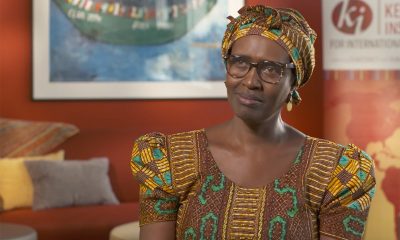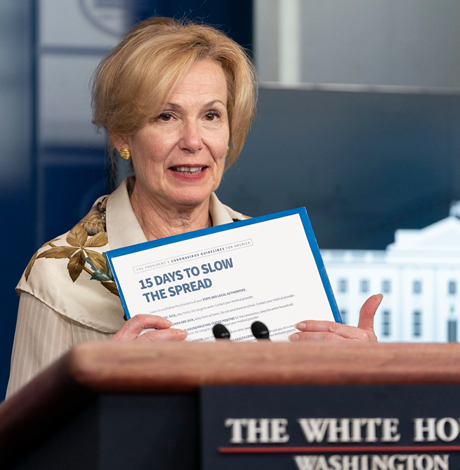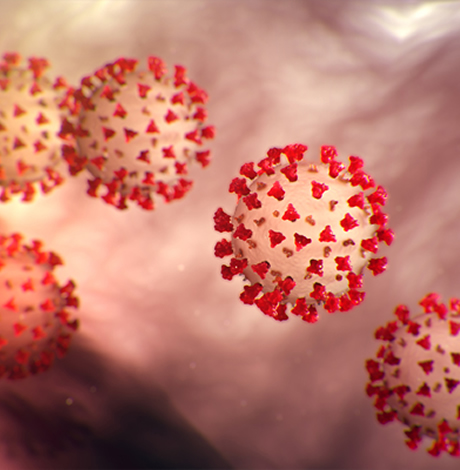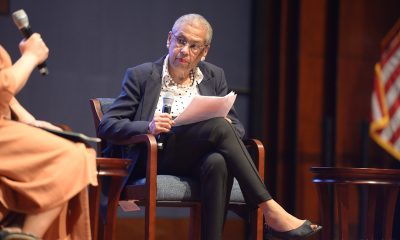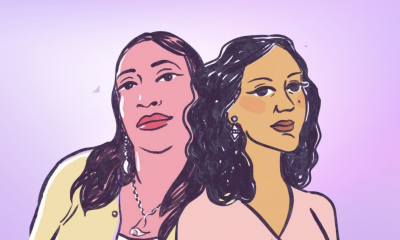Arts & Entertainment
Welcoming the world
Activists, filmmakers prepare for Int’l AIDS Conference with busy lineup of local events
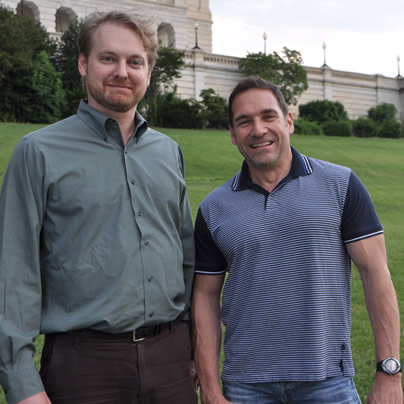
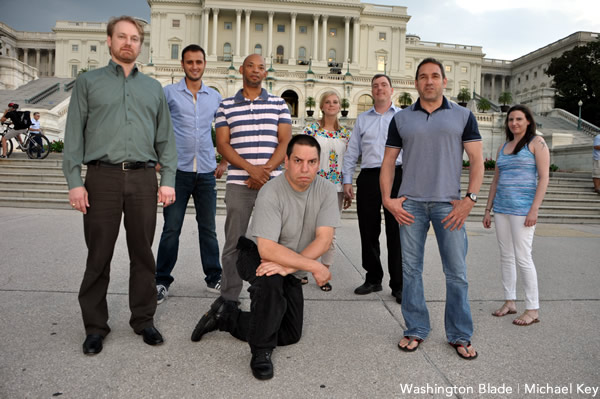
Members of the World AIDS Institute team (l-r): Chad Johnson, Diego Alves, Noel Short, David Miller, Angela Kelly, Kevin Maloney, Dave Purdy and Mariel Selbovitz. (Washington Blade photo by Michael Key)
As Washington gears up to host the International AIDS Conference for the first time in 22 years, local organizations have planned a bounty of free or independent events for those who could not afford the $150-$1,045 registration fee.
Global Village, an international organization that brings together leaders, researchers and performers from all over the world to increase awareness of HIV/AIDS, is hosting several sessions within the conference ranging from video screenings and art exhibitions to networking zones and meeting rooms. Everything the Global Village is hosting is free and open to delegates and locals.
“We are trying to connect science, research and community,” coordinator Joseph Elias says. “It is important that the D.C. community participates to get a grasp of what is happening locally and globally.”
Several of the events will be geared toward youth under the age of 30 dealing with HIV/AIDS.
Emily Carson, youth program coordinator at Global Village, says the focus on youth has been in demand.
“Young people are disproportionally affected by HIV,” she says. “In the conference in 2000, there were only 50 young people, and they said this is a severe problem, no one is speaking for us.”
Among the many attractions in the Global Village area, there will be an interactive story telling booth called, “Generations HIV.” The booth looks like a photo booth, but it records video instead.
The booth was created by Marc Smolowitz and Jörg Fockele, both San Francisco-based filmmakers, as part of their HIV Story Project. The booth has been featured three times in the San Francisco Bay area and has so far collected about 250 clips. The HIV Story Project is a non-profit organization that compiles multi-platform story telling and short films about living with HIV/AIDS.
“The booth is a conversation starter,” Smolowitz says. “It is to connect different generations of people living with HIV. You can ask questions of different generations, answer questions or record your personal story.”
Smolowitz and Fockele are currently trying to start an archive online where all the videos will be posted.
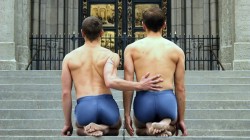
A still from ‘Ours,’ one of the films being screened July 24-25 in the AIDS Film Festival. (Image courtesy the Festival)
Along with the booth, the HIV Story Project team also has a movie screening at the International AIDS Film Festival, which is occurring in conjunction with the conference from July 24-25. The film is titled, “Still Around,” and is a compilation of 15 short films portraying different people living with HIV/AIDS in the San Francisco area. The people were paired with 16 different directors and had direct say in their own films. The films vary, and include stories about how people are thriving with the disease. One subject is a man who copes with his HIV-positive status through a hooking ritual. Another is a couple that marries, has a daughter and faces HIV/AIDS together.
Fockele says the film is an update of what the face of HIV/AIDS looks like in the U.S. and in Europe today.
“In Europe and the U.S. there are mostly historic films about HIV and AIDS,” he says. “What we went out to do is to get a film that is right here, right now.”
The movie is opening the festival on July 24 at 7 p.m. Tickets are $10, and a pass for all four films is $25. For more information about the International AIDS Film Festival 2012, visit internationalaidsfilmfestival.org.
The film festival and several other community events are a part of the AIDS2012 Reunion, a resource for conference attendees to see what local events are taking place outside the main conference.
“The one thing we are doing is we are allowing anyone to participate,” managing director David Purdy says. “Low-income people are one group that needs support and to get educated about HIV/AIDS.”
Some of the events in the AIDS2012 Reunion as well as other community events include:
• On July 20-21, the DC Center, National Coalition of LGBT Health, Whitman-Walker Health and Us Helping Us at George Washington University (2029 G St., N.W.) are hosting the Gay Men’s Health Summit. Registration is $85, $65 for students.
• On July 21, Jay Brannan is playing at the U Street Music Hall (1115A U St., N.W.) at 7 p.m. Tickets are $20.
• From July 21-27, the Textile Museum (2320 S St., N.W.) is showing a special display of one panel from the AIDS Quilt. An $8 donation is suggested.
• On July 22, there’s a March on Washington involving several different local organizations from noon to 2 p.m.
• On July 19 and 23, Arena Stage (1101 6th St., S.W.) hosts a benefit performance of its current production, the Larry Kramer-penned AIDS classic “The Normal Heart” at 8 p.m. Tickets are $65.
• On July 24, “Return to Lisner: A Forum on the State of HIV/AIDS,” is taking place at the Lisner Auditorium at George Washington University (2029 G St., N.W.). Registration is required.
For more events, visit the AIDS2012 Reunion website aids2012reunion.org.
These events are only a fraction of what will be occurring throughout the D.C. Metropolitan area.
Chris Dyer, organizer for the Gay Men’s Health Summit, says by hosting separate events from the conference, organizations can make them more focused on certain groups.
“Gay men’s health issues are unique,” he says. “The main conference deals with a variety of issues, but we are providing a safe place for gay, bisexual or trans men to talk about their specific issues in a safe place.”
Purdy also says that organizations like AIDS2012 Reunion bring the focus back to what is happening locally and connecting people to services they may not be aware of.
“We’re providing an opportunity to participate and win this war against AIDS,” he says.
Bringing the spotlight back to Washington, local filmmakers Art Jones and Pam Bailey are also presenting their documentary “13 Percent,” which is about how the African-American population in Washington and other metropolitan areas has been affected by HIV/AIDS in the past 10 years. The movie will be screening at Bloombars (3222 11th St., N.W.) on July 24 at 7 p.m. RSVP and $10 donation is suggested.
The film is intermixed with interviews from medical professionals, political leaders, religious leaders and those living with the virus. They showcase a variety of people affected by the disease and their stories, one of the most compelling being a young woman named Raven.
Raven was born with HIV and when her mother informed the Catholic school she was attending, Raven began facing daily discrimination from teachers and students. She describes how one teacher put garbage bags around her and would bar her from going on class trips. All of this occurred well after it was known how the virus is spread.
“I am hoping [the audience] take away the recognition that we are a community that is really threatened,” Jones says. “This film should be a call to action.”
He hopes this would lead to more exposure of how much of a threat HIV remains.
Purdy wishes similar things for attendees of the conference and the different community events.
“Really, I hope people have a new commitment or a recommitment to work together in this fight,” he says. “I would like them to share stories and remember the 30 million who have died from AIDS worldwide. There is a lot of work that needs to be done.”
Movies
‘Pillion’ director on bikers, BDSM, and importance of being seen
‘We put a lot of thought and effort into how we depicted the community’
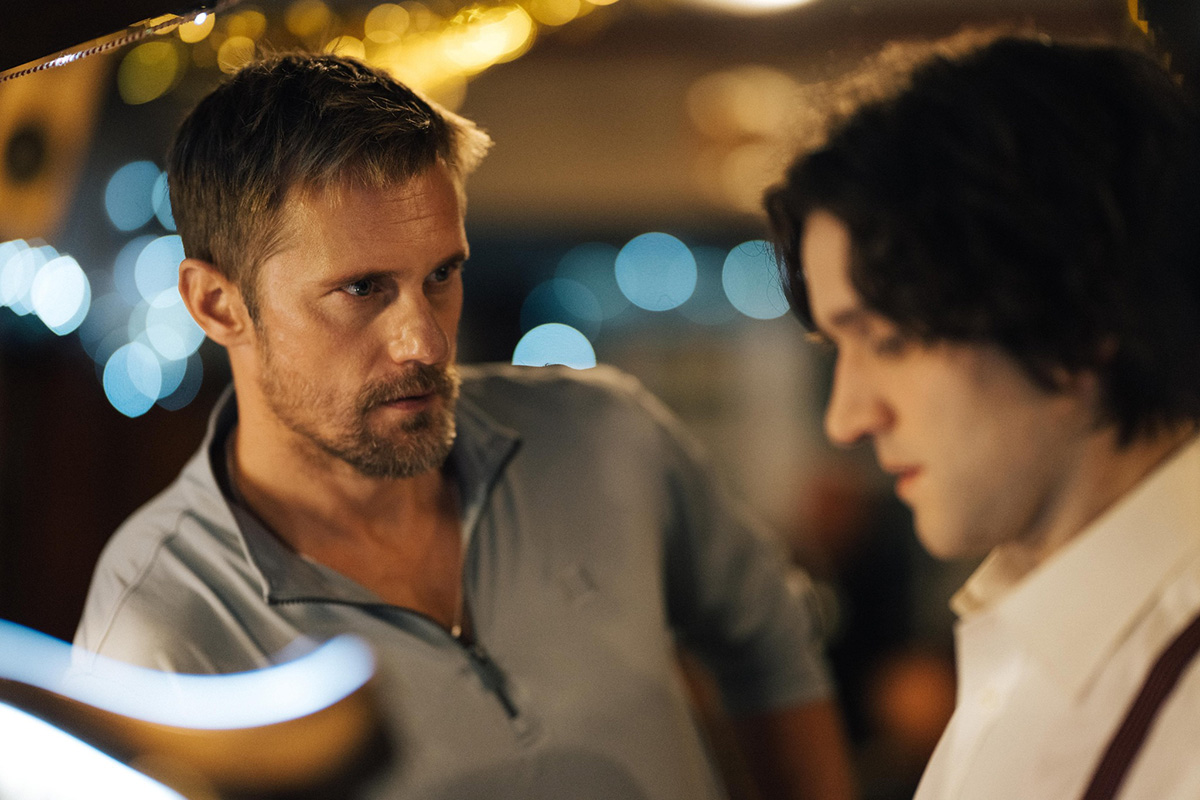
One of the highlights of last week’s Mid-Atlantic Leather Weekend came not on the dance floor, but in a movie theater. In a new partnership, the independent film studio A24 brought its leather-clad new film “Pillion” — not yet in wide release — to D.C. for special showings for the MAL crowd.
“Pillion,” a term for the motorcycle passenger seated behind the driver, delves into the complicated relationship between an introverted, quiet Londoner Colin (Harry Melling) who embarks on a journey finding himself while entering into a sub relationship with a new Dom named Ray (Alexander Skarsgård) he meets during Christmas.
It’s writer-director Harry Lighton’s feature-length debut, sharing Skarsgård’s impossibly toned physique with both Colin and audiences, and offering an eye into the BDSM community by an LGBTQ director for the general public. This from a studio that also just released a movie about ping-pong starring Timothée Chalamet.
The Washington Blade was able to catch a screening at Regal Gallery Place on Jan. 18, hosted by MAL and Gary Wasdin, executive director, Leather Archives & Museum. The Blade also had a chance to interview Lighton about the experience.
Blade: How did you get involved in this film, especially as this is your directorial debut?
Lighton: I was sent “Box Hill,” the novel on which “Pillion” is based, by Eva Yates (the head of film at the BBC). I’d spent years working on a sumo film set in Japan, and then suddenly that became impossible due to the pandemic so I was miserable. And then I read this book that I found bracing, funny, moving. All the good things.
Blade: Are you involved with the leather community? Did you draw on any personal experiences or make connections with the community?
Lighton: I’m involved in the wrestling scene but not the leather community. So I spent lots of time with people who are [in the community] during the writing process, and then ended up casting a bunch of them as bikers and pillions in the film. They were incredibly generous to myself, Harry, and Alex with their knowledge and experiences. We have them to thank for lending credibility to the world on screen.
Blade: What kind of reception have you received at film festivals and with the LGBTQ community? Was it what you imagined?
Lighton: Obviously not everyone’s going to like the film — for some people it’ll be too explicit, for some not explicit enough; some people will feel seen, some won’t. But the general reaction’s been extremely positive so far. If I’m honest I thought it would divide opinion more.
Blade: How was it working with the actors?
Lighton: I had a lot of respect for both of them going in, and wondered if that might make me a bit too deferential, a bit too Colin-coded. But besides being extremely talented, they’re both lovely. And committed. And fun! With my shorts I always felt a bit out of my depth working with actors, but here I discovered a real love for it.
Blade: Turning to the plot, the parents are pretty supportive, especially Colin’s dad. How did you decide to draw his parents? What does it mean to show parents with nuanced viewpoints?
Lighton: I wanted to reverse the typical parent-child dynamic in queer film, where parents go from rejecting to accepting their queer kid. We meet Colin’s parents actively pushing him toward a gay relationship. But when the relationship he lands on doesn’t meet her definition of healthy, his mum withdraws her acceptance. I wanted to ask: Are they projecting their romantic model onto their son, or do they have a legitimate concern for his wellbeing with Ray?
Blade: How did you decide to place the setting?
Lighton: Practically, we needed somewhere within reach of London. But I liked the idea that Colin, who lives life on the periphery, grew up on the edge of the capital. One of our producers, Lee Groombridge, grew up in and around Bromley and showed me all the spots. I loved the atmosphere on the high street, the markets, and the contrast between the high street and the idyllic park. And I thought it would be a funny place for Alexander Skarsgård to have settled.
Blade: What do you hope audiences take away from the film?
Lighton: There’s no one message. Different people will take different things from it. Personally, Colin inspires me to jump off cliffs, to push beyond my comfort zone because that’s where life begins. From Ray I get the courage to be ugly, to fly in the face of social convention if it doesn’t make you happy or it’s not built for you.
Blade: Talk about the soundtrack — especially the Tiffany “I Think We’re Alone Now” song.
Lighton: Skarsgård’s Ray has the surface masc-ness that comes with looking like a Viking. I wanted to combine that with details that indicate he’s been a part of gay culture and “I Think We’re Alone Now” is nothing if not a camp classic.
Blade: What does it mean to you to show the film at MAL?
Lighton: When I told the bikers from the film I was coming to MAL they practically wet themselves with excitement. We put a lot of thought and effort into how we depicted the community in the film and there’s so much variety, no two Masters or subs are the same, but seeing a theater full of men in leather laugh, cry, and clap for the film meant the world.
a&e features
Alexander Skarsgård describes ‘Pillion’ in 3 words: lube, sweat, leather
Highly anticipated film a refreshingly loving look at Dom-sub life
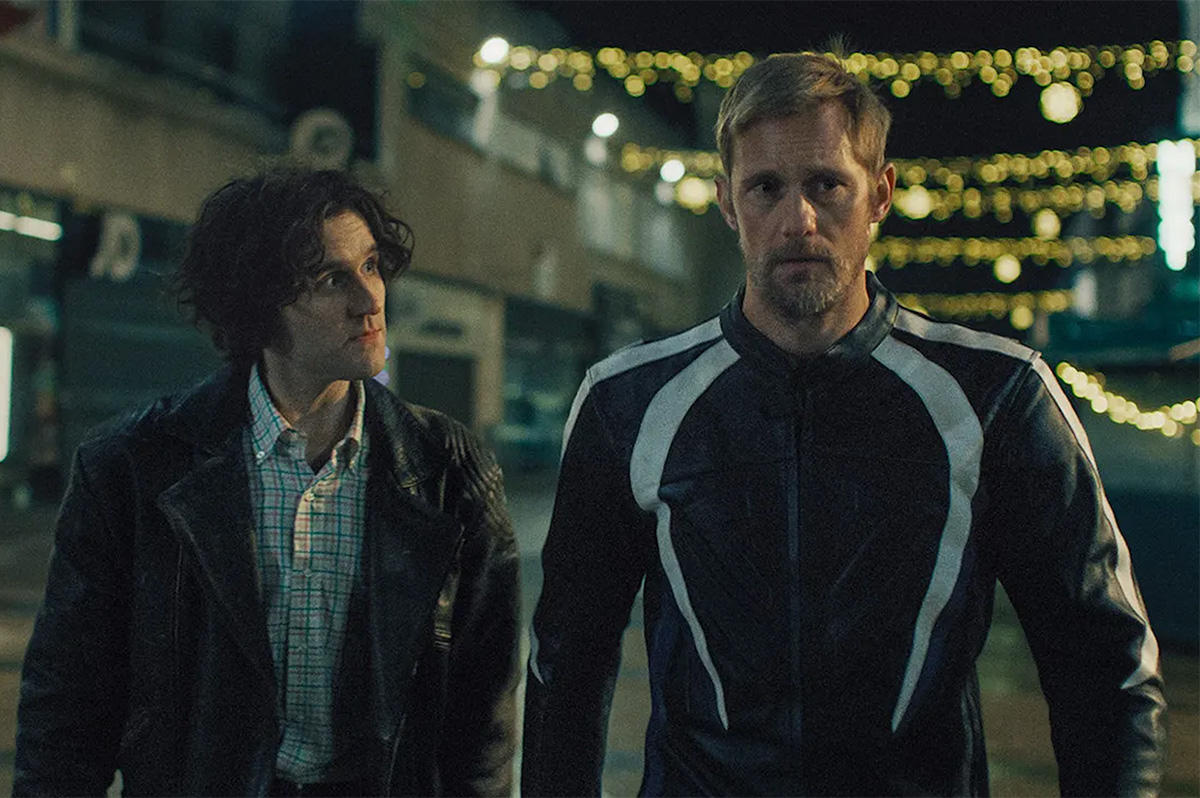
Whether you’ve seen him in popular HBO series like “True Blood,” “Succession,” and “Big Little Lies,” the dynamic Swedish actor Alexander Skarsgård has that smoldering gaze that immediately draws viewers in.
Following in the footsteps of his father Stellan, (who just won the Golden Globe for “Sentimental Value”) the Golden Globe, Emmy, and SAG winner Skarsgård continues to be an actor who is fearless in the roles he takes on.
That courageousness is evident in Skarsgård’s latest film, the BDSM black comedy “Pillion,”which he also executive produces. He plays Ray, the handsome, hyper-dominant leader of a gay bike gang. The film was written and directed by Harry Lighton, and is based on the 2020 novel “Box Hill,” by Adam Mars-Jones.
“This was a small film by a first time filmmaker and it wasn’t financed when I read it,” Skarsgård told journalists at a recent awards news conference. “And I felt that, if I could help in any small way of getting it financed, I wanted to, because I thought it was such an incredible screenplay and I believe in Harry Lighton so much as a filmmaker. And it felt tonally unlike anything I’d ever read. It was such an exciting, surprising read.”
Skarsgård was blown away by the quality of the unconventional script. “When I heard BDSM relationship, biker culture, I expected something very different. I didn’t expect it to have so much sweetness and tenderness and awkwardness.”
For the sex scenes and nudity with co-star, Harry Melling — who excels in his portrayal as Ray’s submissive Colin — Skarsgård talked very early on with Lighton about how he wanted to shoot those scenes, and why they were in the film.
“I often find sex scenes quite boring in movies because a lot of the tension is in the drama leading up to two people hooking up, or several people hooking up, as in our movie. But what I really enjoyed about these scenes — they are all pivotal moments in Colin’s journey and his development. It’s the first time he gets a blowjob. It’s the first time he has sex. It’s the first time he has an orgasm. And these are pivotal moments for him, so they mean a lot. And that made those scenes impactful and important.”
Skarsgård was happy that Lighton’s script didn’t have gratuitous scenes that shock for the sake of just shocking. “I really appreciated that because I find that when this subculture is portrayed, it’s often dangerous and crazy and wild and something like transgressive.”
He continued: “I really love that Harry wanted it to feel real. It can be sexy and intense, but also quite loving and sweet. And you can have an orgy in the woods, rub up against a Sunday roast with the family. And that kind of feels real.”
One of the obstacles Skarsgård had to work with was Ray’s emotionally distant personality.
“Ray is so enigmatic throughout the film and you obviously never find out anything about him, his past. He doesn’t reveal much. He doesn’t expose himself. And that was a challenge to try to make the character interesting, because that could easily feel quite flat…That was something that I thought quite a lot about in pre production…there are no big dramatic shifts in his arc.”
For the film, Lighton consulted the GMBCC, the UK’s largest LGBT+ biker club, attending their annual meetup at which 80 riders were present.
“Working with these guys was extraordinary and it brought so much texture and richness to the film to have them present,” said Skarsgård. “They were incredibly sweet and guiding with us — I can’t imagine making this movie without them. I’d go on a road trip with them anytime.”
Added Skarsgård: “To sum up ‘Pillion’ in three words: lube, sweat, and leather. I hope people will connect with Colin and his journey, and come to understand the nuance and complexity of his bond with Ray.”
This year is shaping up to be a busy one for Skarsgård. “Pillion” premieres in select cities on Feb. 6 and then moves into wide release on Feb. 20. After that for Skarsgård is a role in queer ally Charli XCX’s mockumentary, “The Moment,” which premieres at the Sundance Film Festival. HIs sci-fi comedy series, Apple TV’s “Murderbot,” which he also executive produces, will begin filming its second season. And this weekend, he hosts “Saturday Night Live.”
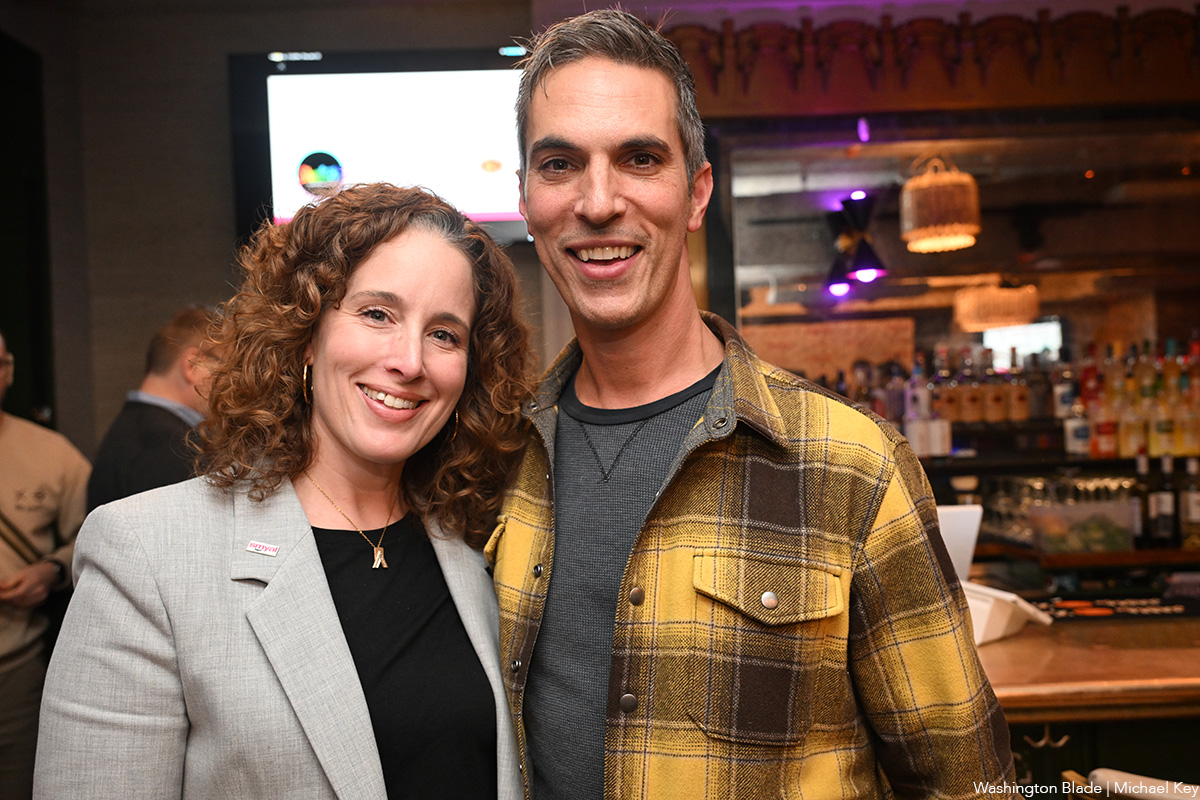
The LGBTQ youth services organization SMYAL held its annual fundraiser, ‘SMYAL for the New Year,’ at Shakiki (2012 9th Street, N.W.) on Thursday, Jan. 22.
(Washington Blade photos by Michael Key)
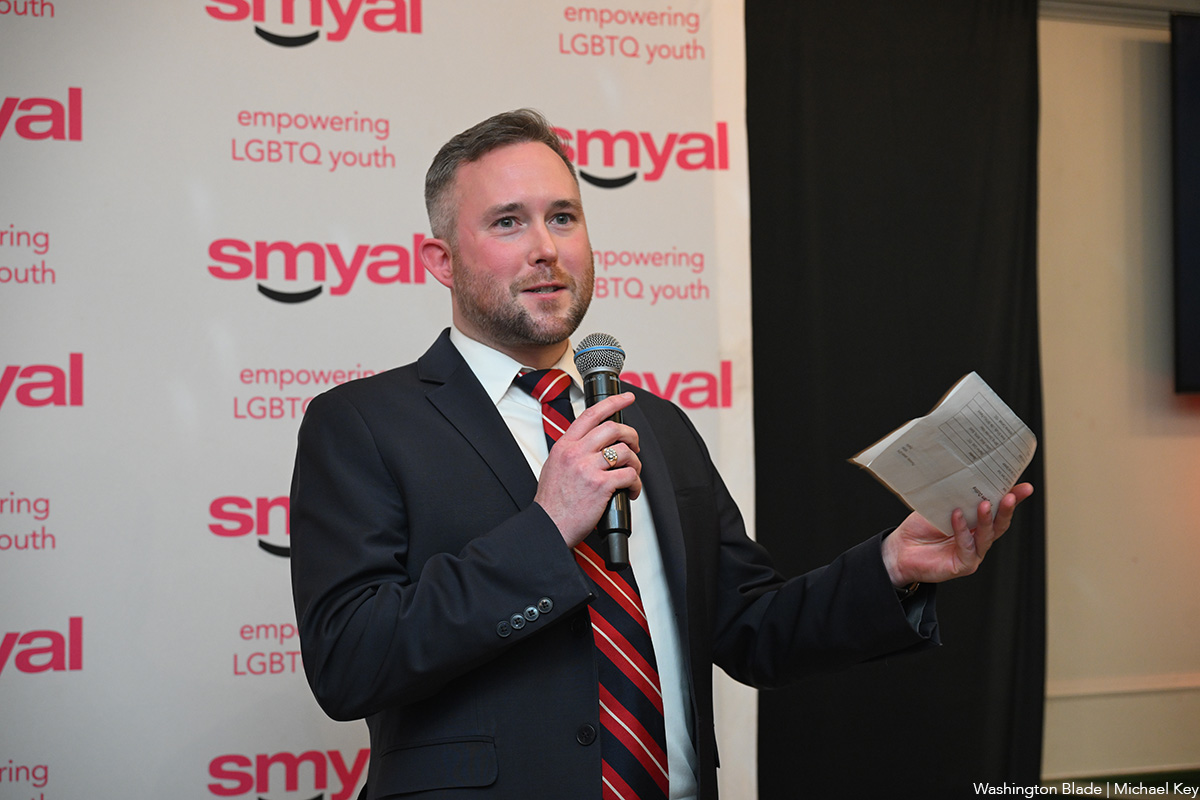
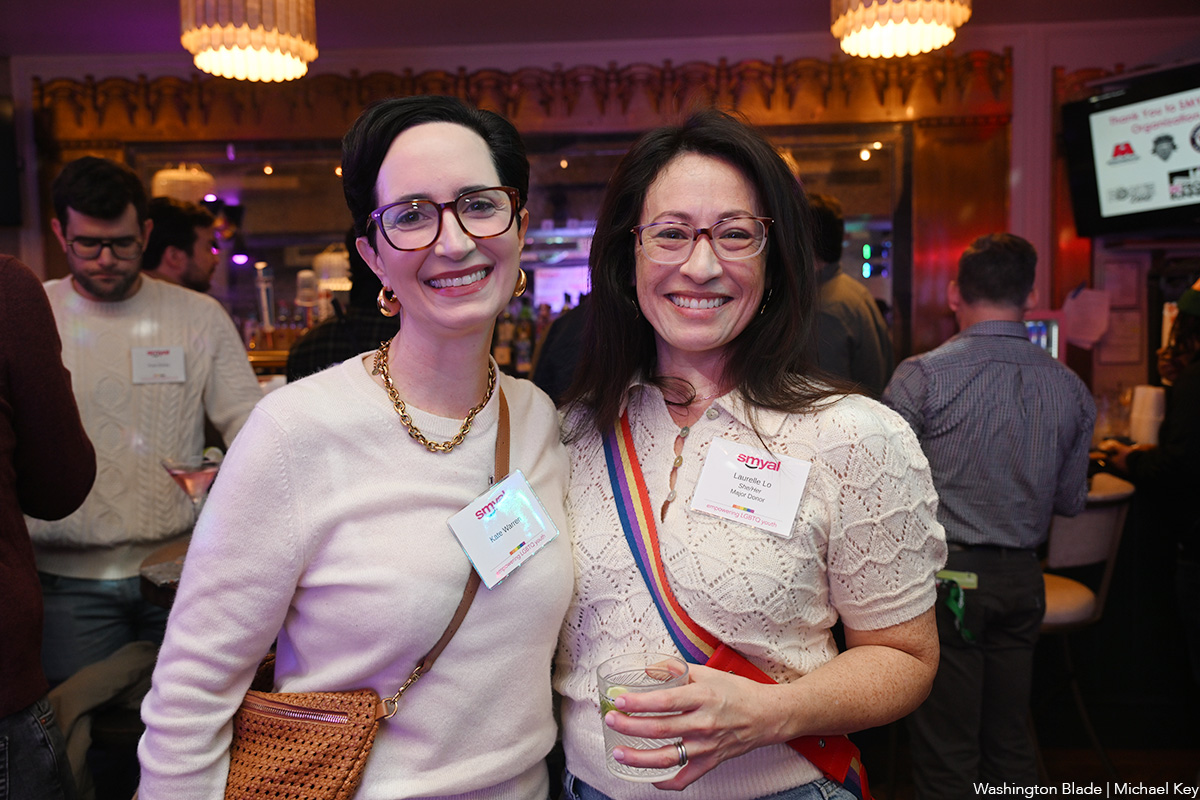
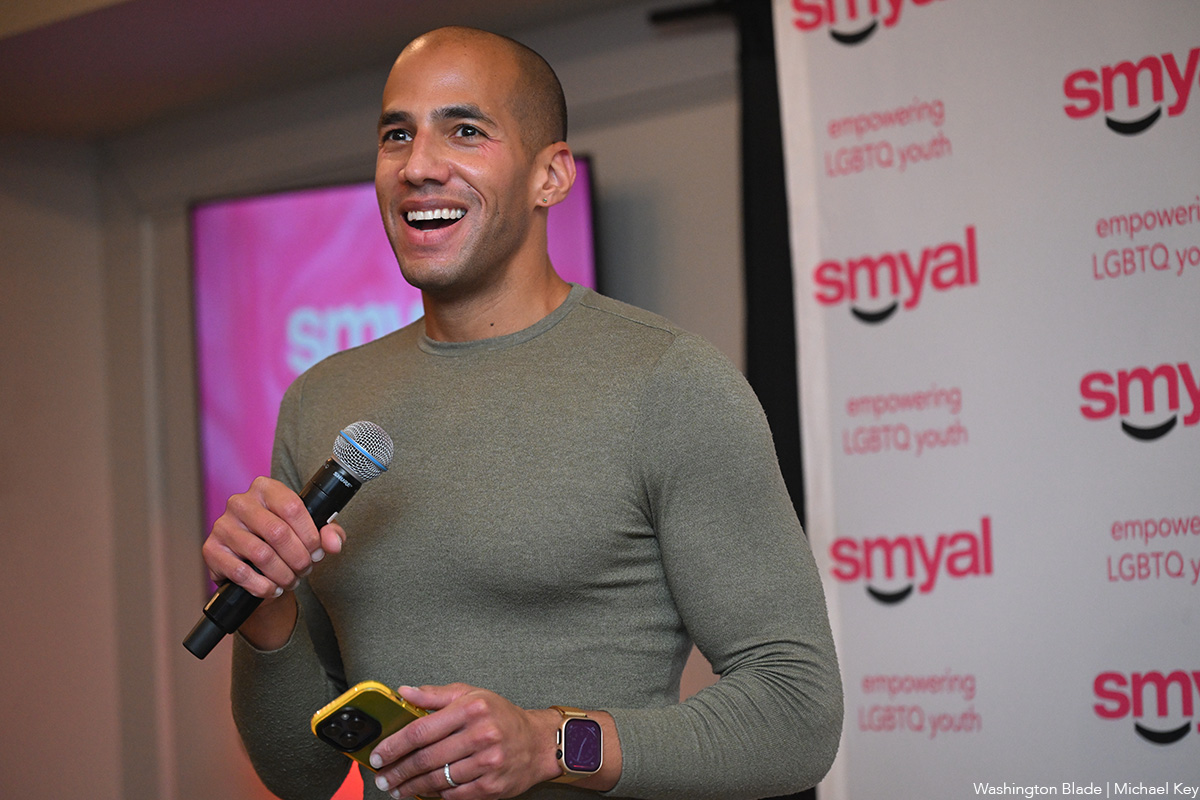
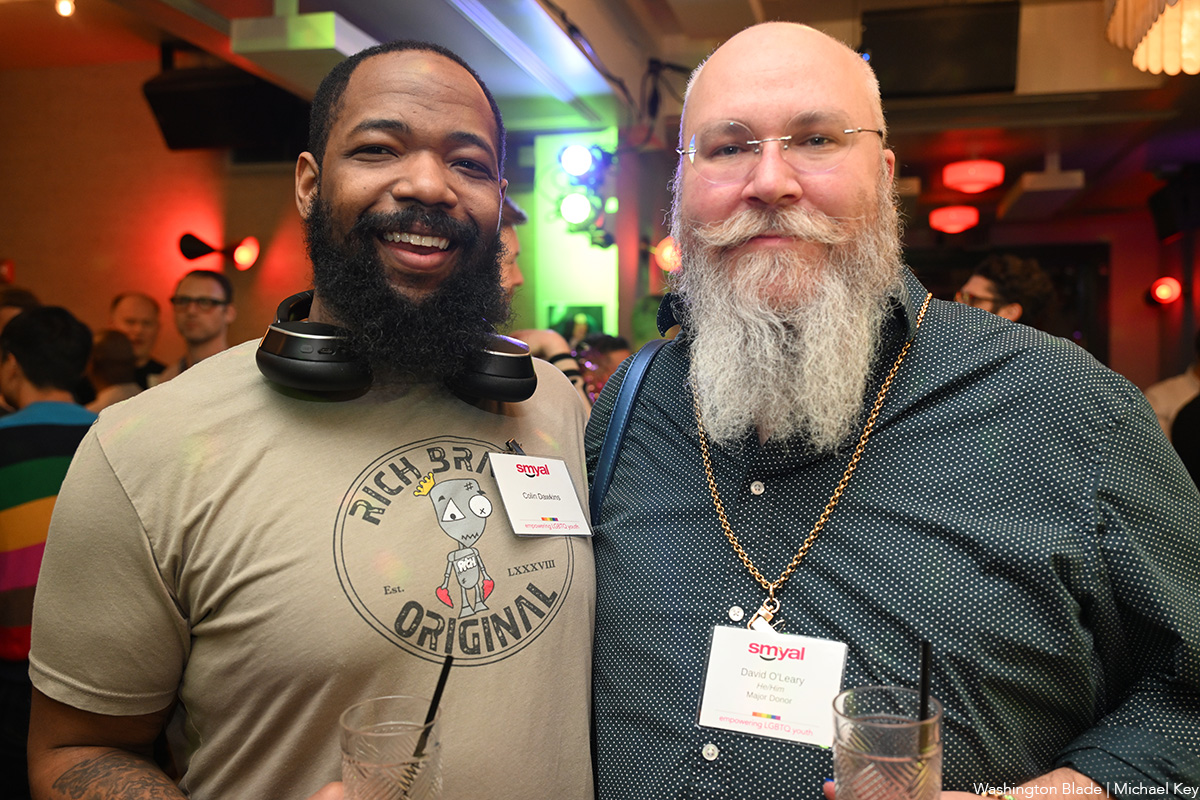
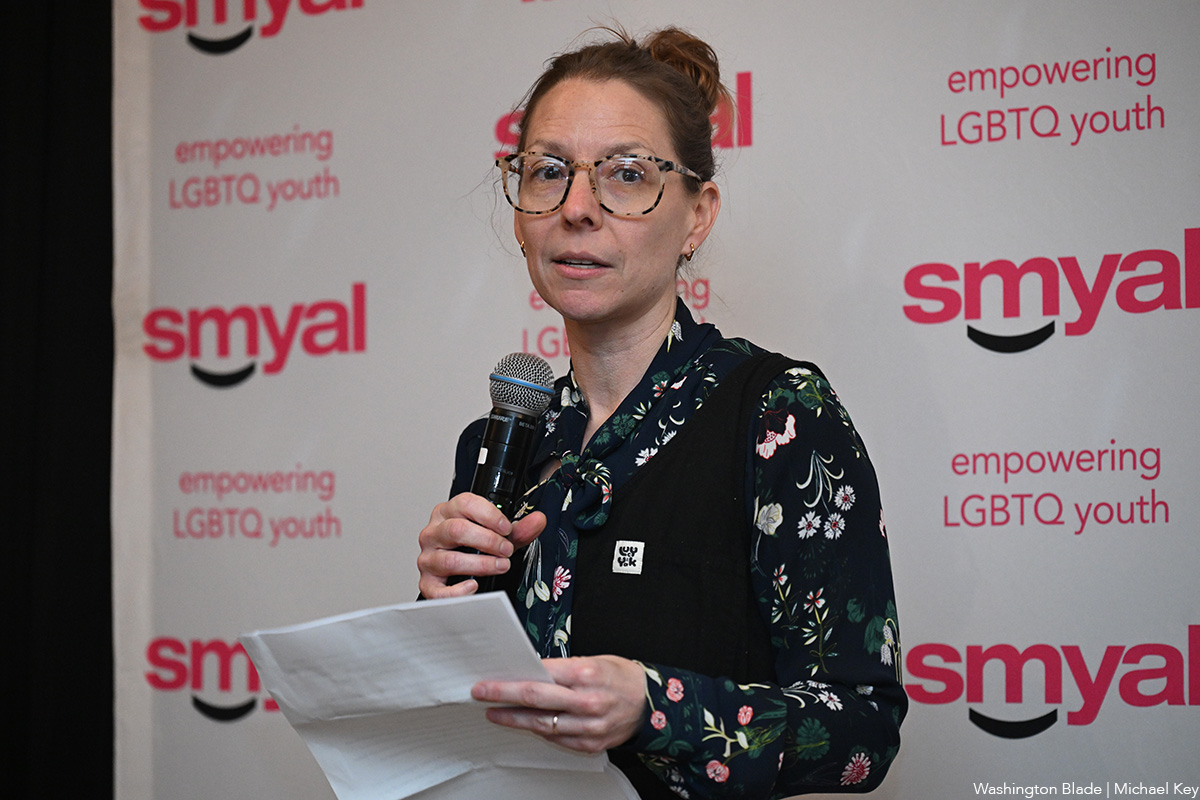
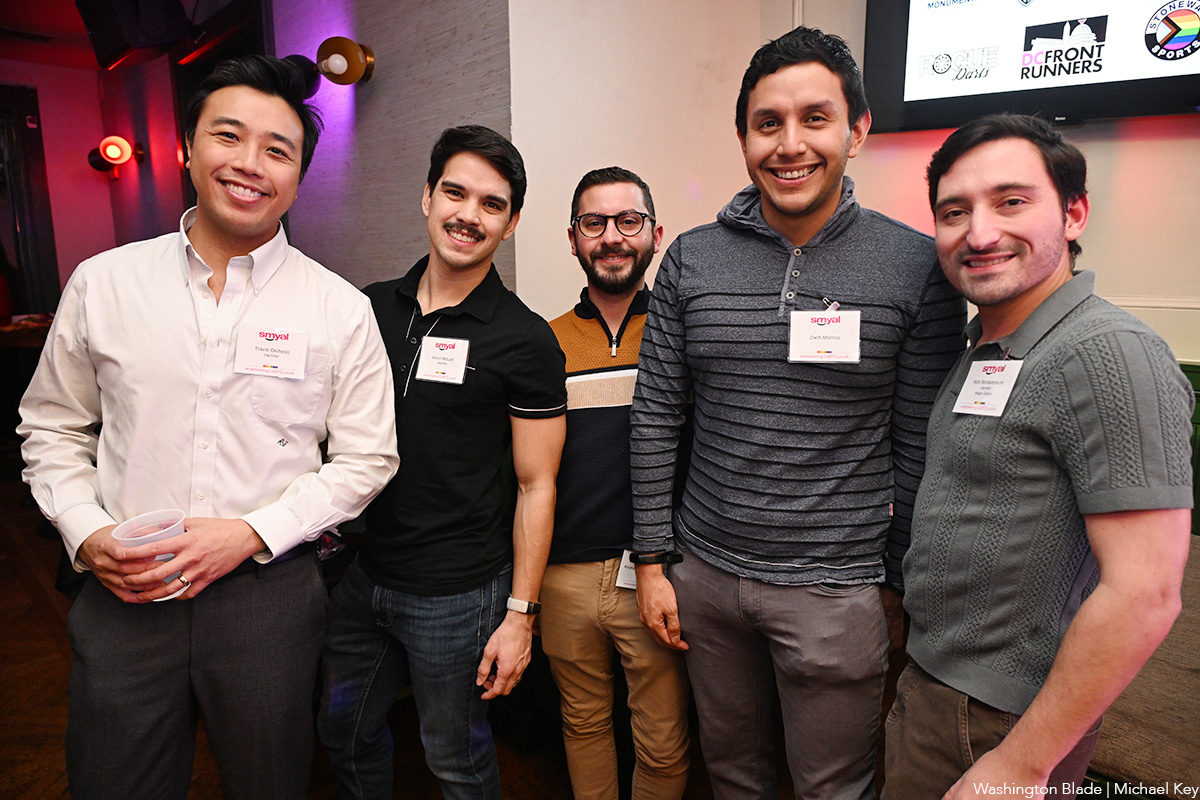
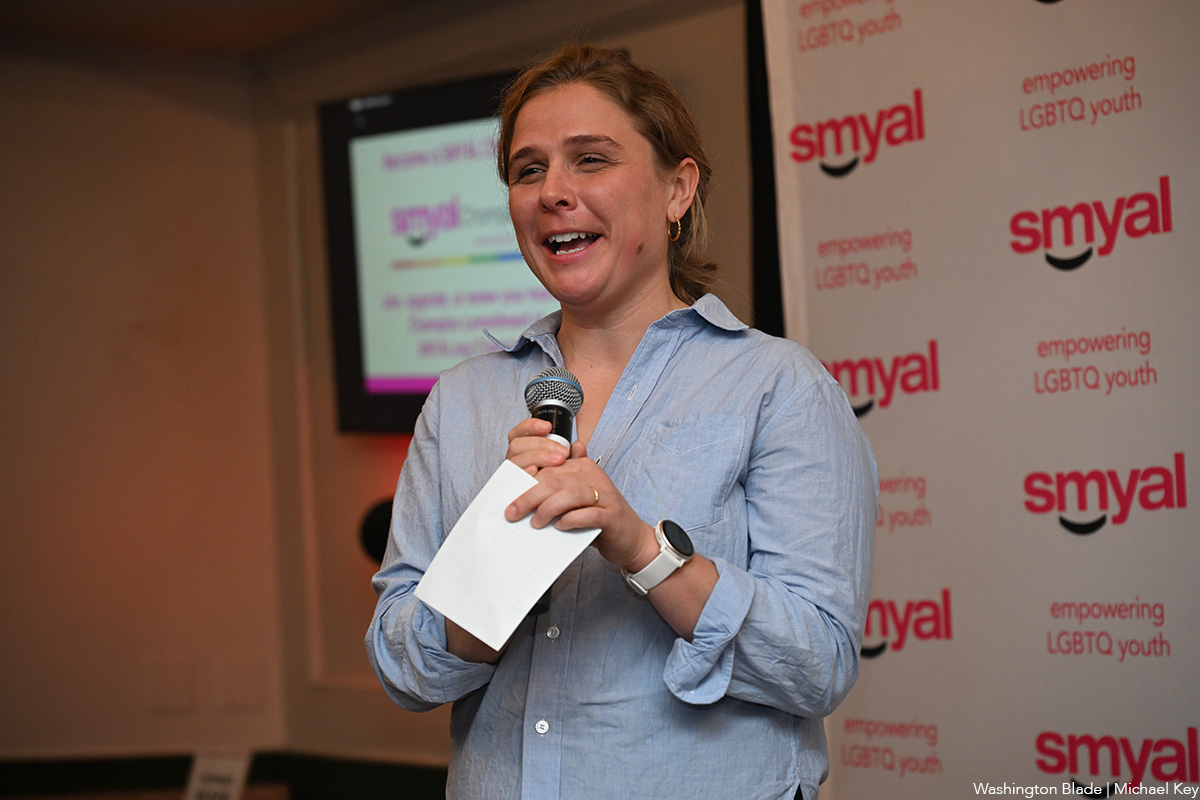
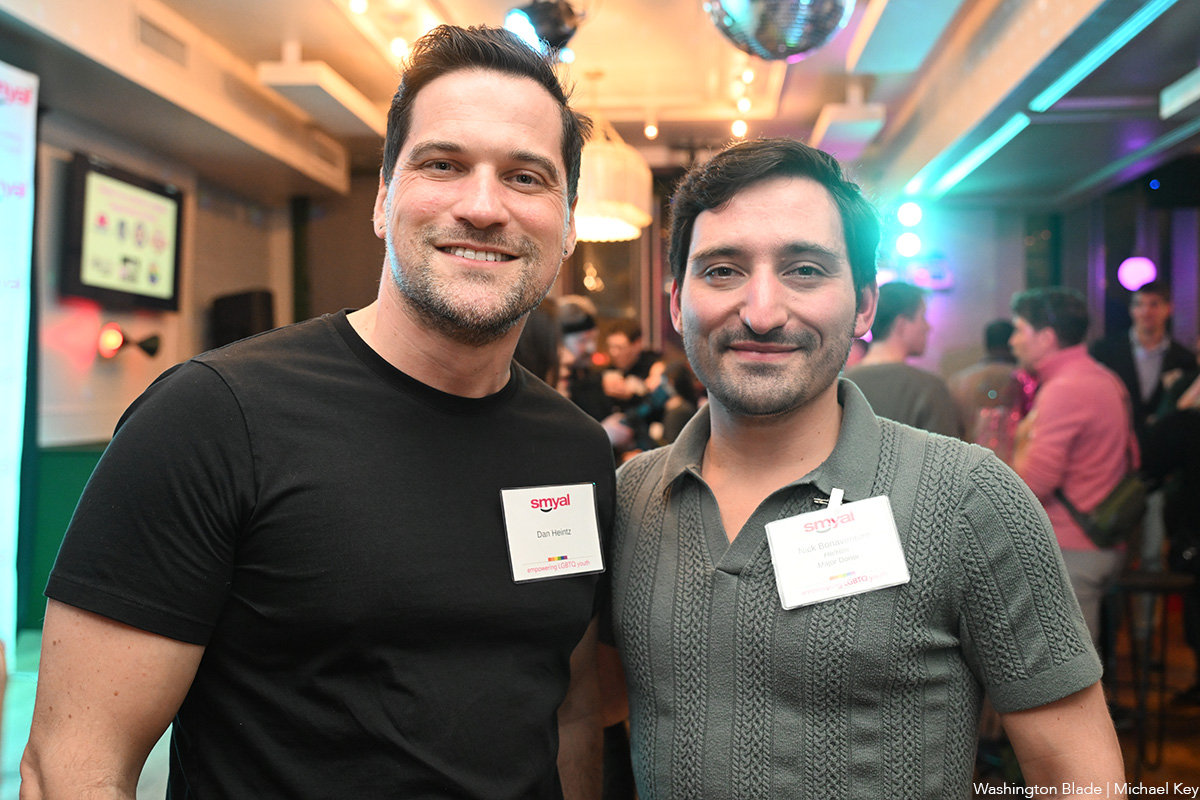
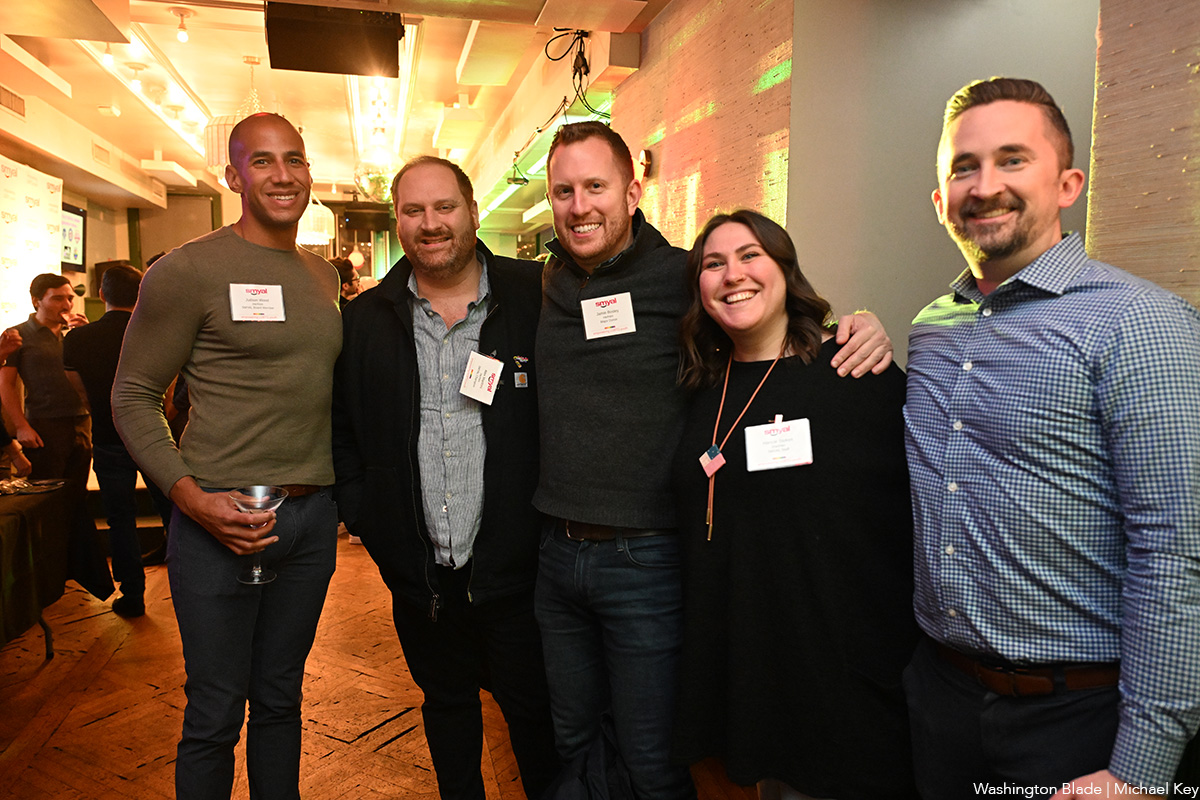
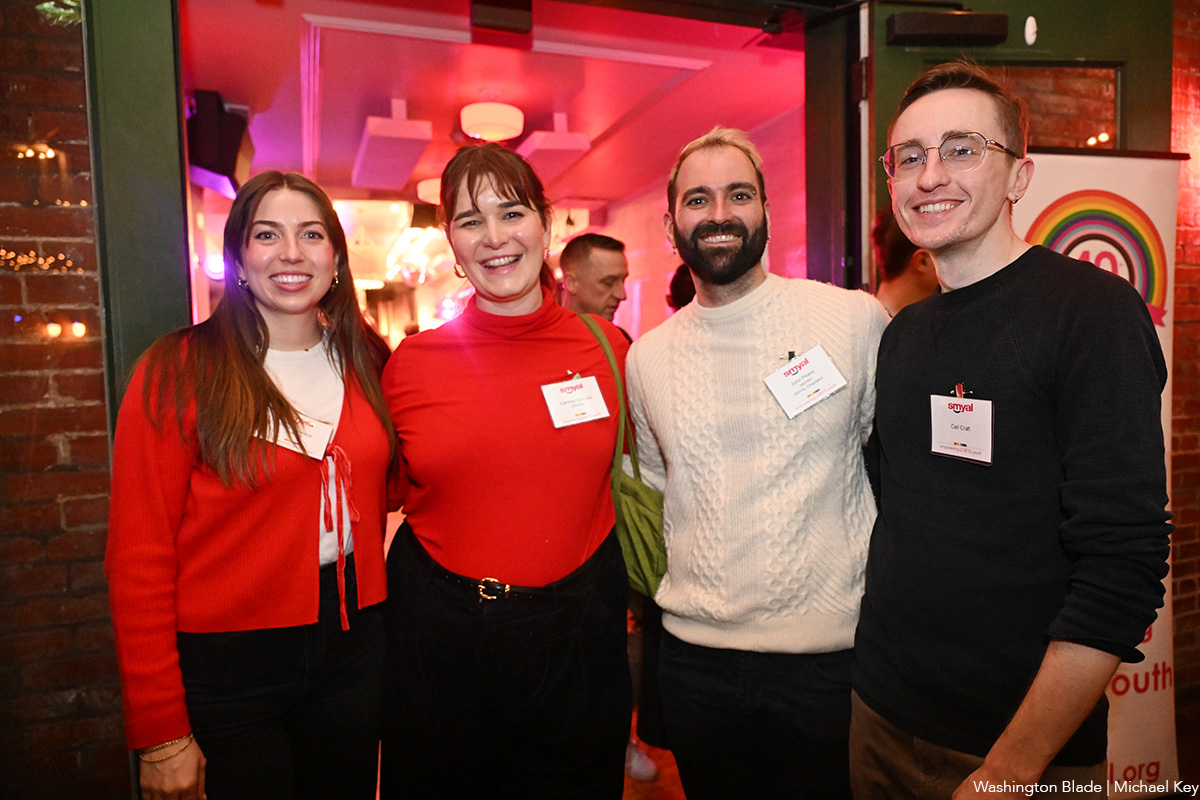
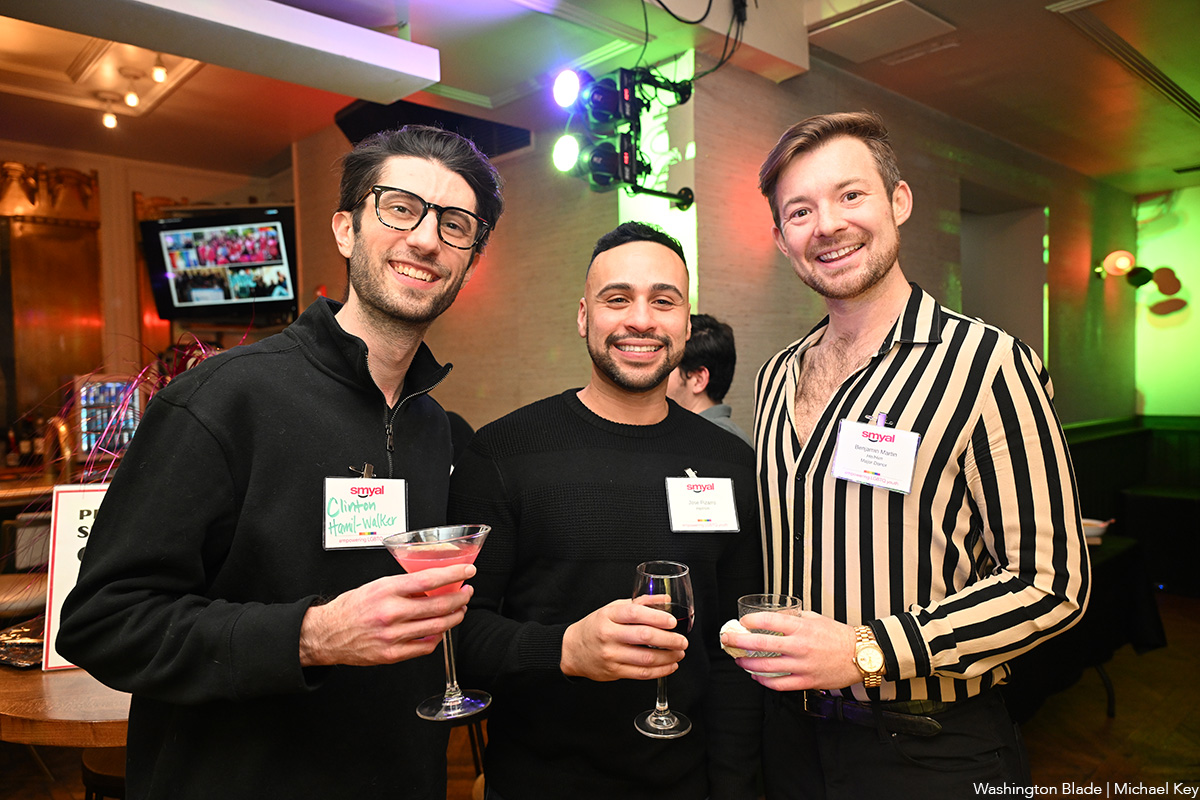
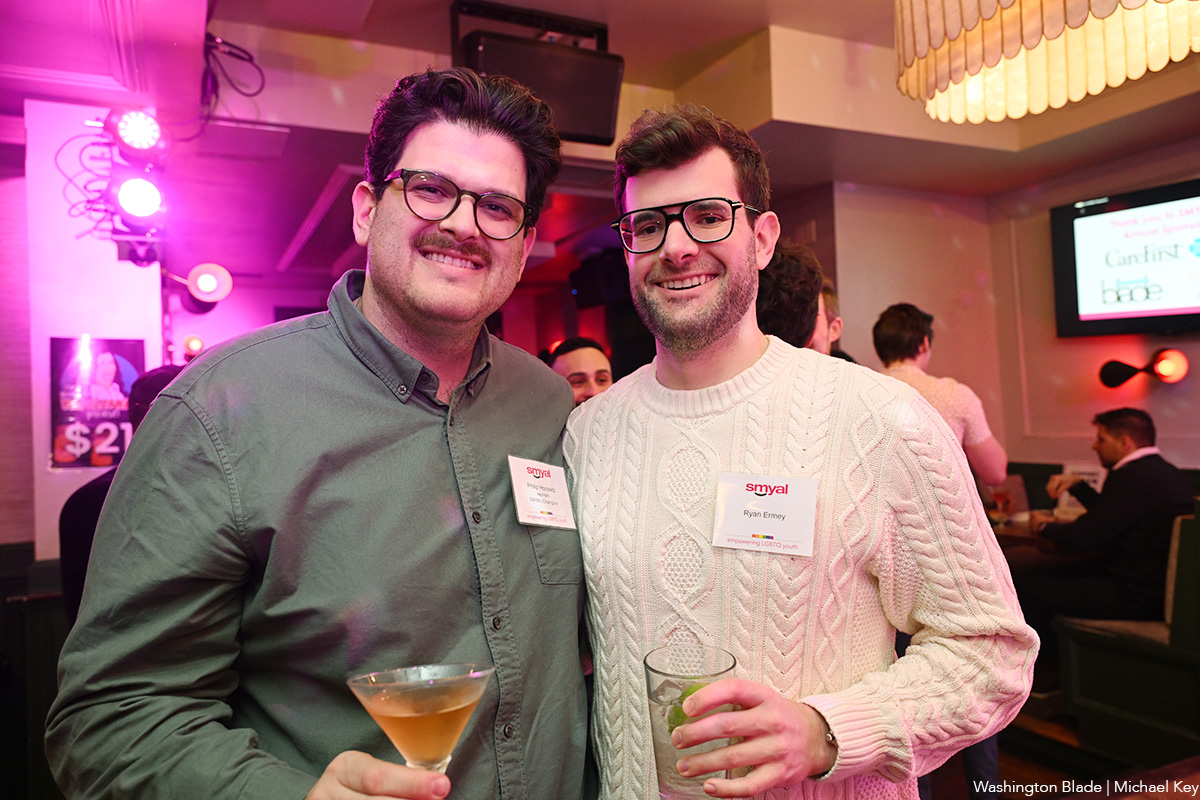
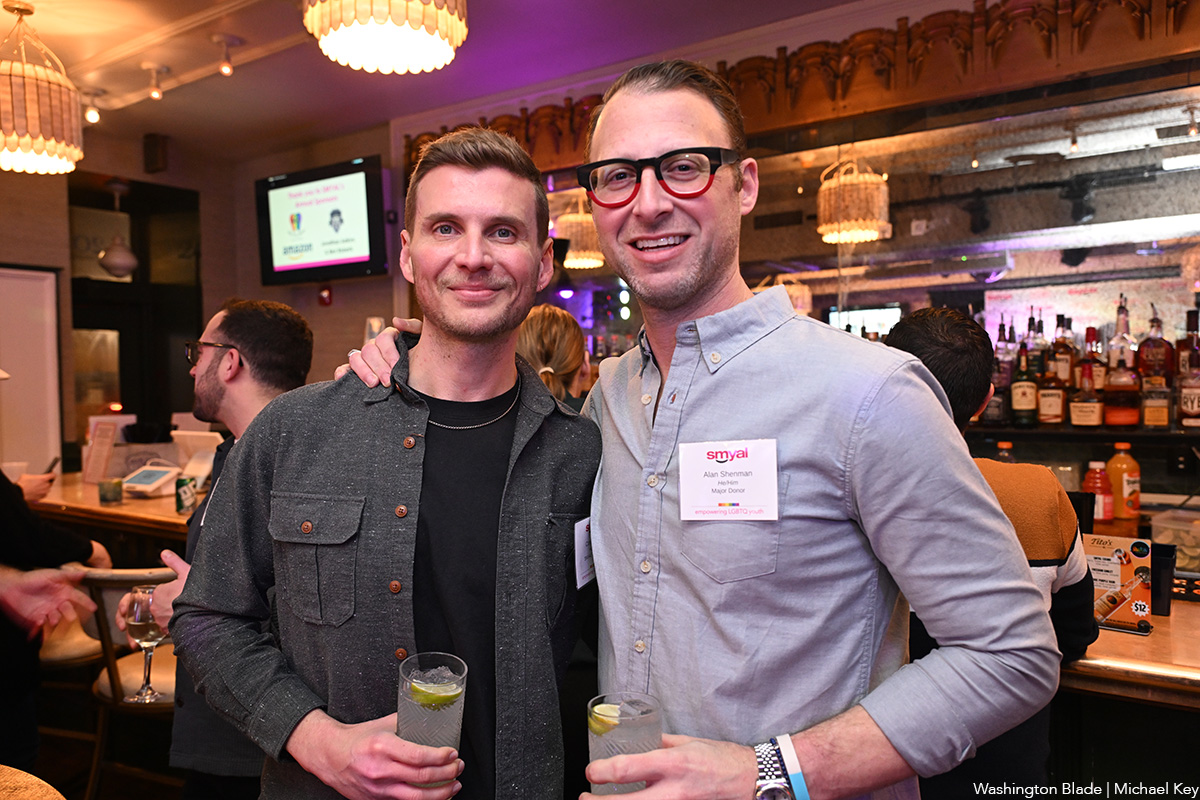
-

 Real Estate4 days ago
Real Estate4 days agoConvert rent check into an automatic investment, Marjorie!
-

 Theater4 days ago
Theater4 days agoSwing actor Thomas Netter covers five principal parts in ‘Clue’
-

 District of Columbia4 days ago
District of Columbia4 days agoEleanor Holmes Norton ends 2026 reelection campaign
-

 Honduras4 days ago
Honduras4 days agoCorte IDH reconoce a Thalía Rodríguez como familia social de Leonela Zelaya

